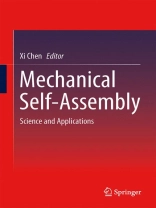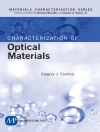Mechanical Self-Assembly: Science and Applications introduces a novel category of self-assembly driven by mechanical forces. This book discusses self-assembly in various types of small material structures including thin films, surfaces, and micro- and nano-wires, as well as the practice’s potential application in micro and nanoelectronics, MEMS/NEMS, and biomedical engineering. The mechanical self-assembly process is inherently quick, simple, and cost-effective, as well as accessible to a large number of materials, such as curved surfaces for forming three-dimensional small structures. Mechanical self-assembly is complementary to, and sometimes offer advantages over, the traditional micro- and nano-fabrication.
İçerik tablosu
Mechanical Self-Assembly in Nature.- Mechanical Self-Assembly vs. Morphogenesis.- Shaping by Active Deformation of Soft Elastic Sheets.- Ion Beam Induced Self-Assembled Wrinkles.- A Kinetics Approach to Surface Wrinkling of Elastic Thin Films.- Crease Instability on the Surface of a Solid.- Buckling Delamination of Compressed Thin Films.- Delaminated Film Buckling Microchannels.- Mechanical Self-Assembly on Curved Substrates.
Yazar hakkında
Dr. Xi Chen is Associate Professor in the Department of Earth and Environmental Engineering at Columbia University. His research explores novel aspects of self assembly within engineering mechanics, with applications to biotechnology, nanotechnology, energy and environment. An NSF CAREER Grantee, Professor Chen has published nearly 150 papers, including cover-features in premiere journals. Dr. Chen earned his Ph.D. at Harvard University under John Hutchinson.












